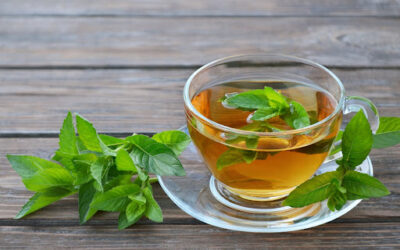The Hidden Benefits of Tea Remedies: What you need to know
Ever wondered what are the hidden benefits of tea remedies? From the benefits of tea to its uses in treating a variety of health conditions, it’s obvious why people turn to tea as a way to keep themselves healthy and well. But did you know there are many additional ways tea can benefit your health?
Nowadays, even if you’re not trying to lose weight, you’re likely already aware of some of the health benefits that come from drinking tea. Whether you’re concerned about losing weight, looking for ways to strengthen your bones, or simply need a cup of tea to relax and unwind, you’ll find plenty of information in this guide to help you make tea part of your daily life.
Discover the hidden benefits of tea and how you can use it to reduce your health issues and stay in tip-top shape.
Top 20 Lists of Tea Remedies
1. Chamomile Tea
Chamomile is a beautiful, fragrant flower with a sweet scent. This kind of herbal tea can help with anxiety, insomnia, stress, and depression. Chamomile has been used for centuries as an aid to relaxation, promotes better sleep and helps reduce menstrual pain and muscle spasms.
2. Peppermint Tea
Peppermint tea is a refreshing and energizing drink that has many health benefits. It is also traditionally used to relieve discomfort of the digestive tract. Studies have found that peppermint oil can help relieve nausea, cramping, spasms and stomach pain.
3. Ginger Tea
Ginger tea is a delicious drink made from ginger, a root with warming properties that promotes circulation and aids digestion. Ginger tea is packed with antioxidants that help fight inflammation and reduce nausea. In addition to that, ginger tea also soothes stomach aches and boosts energy, reducing stress, and promoting healthy digestion.
4. Hibiscus Tea
Hibiscus tea is known as the “tea for health.” It is one of the most commonly consumed herbal teas. It is a great source of vitamin C and has a lot of antioxidants, making it beneficial to the body. It is recommended that people drink hibiscus tea for numerous reasons including weight loss and detoxification.
5. Echinacea Tea
Echinacea is an herbal tea that is well known for its ability to help with colds and flu. It may help boost the immune system, which could help the body fight off viruses or infections. This herbal drink may help soothe your sore throat or clear up your stuffy nose if you do feel a cold coming on.
6. Rooibos Tea
Rooibos Tea is a fairly new addition to the herbal tea family. Rooibos is a delicious herbal tea that is packed with antioxidants. This herbal tea helps to build up the immune system, improve the blood pressure, and strengthen the nervous system. It can also help with digestion.
7. Sage Tea
Sage tea is well known for its medicinal properties. Studies have found that sage improves cognitive function and memory. It may also benefit colon and heart health. Most people know sage tea as being used as an alternative to coffee or alcohol. It’s even used as a remedy for hangovers.
8. Lemon Balm Tea
Lemon balm is a herb that is very famous for its ability to calm anxiety and stress. It is also known to be useful in treating insomnia. It works well against inflammation and infections. Many people also use lemon balm tea for its aroma, flavor, and ability to cleanse your palate.
9. Rose Hip Tea
Rose hip tea is very effective at treating many problems, including stomach and intestinal disorders, as well as heartburn, indigestion, constipation, gas and bloating. This herbal tea is known to aid in relieving pain, stiffness, and swelling, and is said to be good for both men and women.
10. Passion flower Tea
Passion flower tea is traditionally used to relieve anxiety and improve sleep. Passionflower tea also helps relieve the mental symptoms of opioid withdrawal, such as anxiety, irritability and agitation, when taken in addition to clonidine, the medication usually used for opioid detoxification treatment.
11. Cinnamon tea
Cinnamon tea may increase your body’s ability to fight off free radicals, keeping you healthy and protecting you from disease. Cinnamon tea may also fight off infections and reduce PMS and menstrual cramps.
12. Lemongrass tea
Lemongrass tea may help relieve the pain and anxiety, lower blood pressure, act as antioxidant and help with weight management. Studies showed it also has antibacterial and anti inflammatory properties.
13. Tulsi tea
Tulsi or Holy Basil is an adaptogenic herb used for its ability to reduce stress naturally and benefit the overall health. Adaptogenic herbs are often used for dealing with lifestyle-related diseases, especially different types of stress. Tulsi has anti-inflammatory, antioxidant, antidiabetic, anticancer, antimicrobial and radioprotective properties.
14. Rosemary tea
Rosemary may provide several benefits–from helping with Alzheimer’s disease to treating anxiety. Rosemary tea may contain compounds that benefit your heart and digestive health, support weight loss, and even help treat hair loss.
15. Barley tea
Barley tea is a type of herbal tea that is made from the grain called barley. This type of tea is known to have many health benefits. Its benefits include improving digestion, removing toxins, and boosting energy.
16. Olive leaf tea
Olive leaf tea is made from dried olive tree leaves. It has a lightly sweet and refreshing taste. It may have potential use in preventing cancer, lowering cholesterol and blood sugar, and helping with weight loss.
17. Licorice tea
Licorice tea contains the extract from the root of the plant Glycyrrhiza Glabra which is known as licorice. This particular herb is a traditional Chinese remedy for various ailments such as indigestion, flatulence, fever and toothaches. In traditional medicine, Glycyrrhiza is also used to relieve symptoms of asthma and other respiratory problems.
18. Eucalyptus tea
Eucalyptus has been used for its antiseptic and antibacterial properties and for different breathing and lungs related problems–from treating the common cold and flu to sore throat and pneumonia.
19. Black Tea
Black tea may protect lungs from damage caused by exposure to cigarette smoke. It also may reduce the risk of stroke, cancer, diabetes, and heart disease. Loaded with antioxidants and anti-inflammatory properties, black tea helps fight off free radicals in the body. It can help relieve arthritis symptoms.
20. Gingko tea
Ginkgo Tea is one of the most beneficial herbal teas available today. It is high in vitamins and minerals, and contains antioxidants and anti-aging compounds. It is also known for its benefits in improving memory, protecting the brain from aging and slowing the effects of Alzheimer’s disease.
The Takeaways
Herbal teas are a great way to boost your overall health. They are low in sugar and calories and don’t have any bad side effects. Most herbal teas have been used for thousands of years, and many of them are still used today as remedies for certain conditions.
While drinking herbal tea may give us that warm, soothing feeling, it is still not a replacement for medications for illnesses. Herbal teas may improve the way you feel but it is still best to consult a physician should you feel any symptoms arise.
Nevertheless, it is always good to try out herbal teas if you have not yet dipped into the world of tea.

Benefits Of Jade Citrus Mint Tea (And, Where You Can Buy It)
What happens, if you learn that there is a tea that has a host of health advantages? Naturally, it also has excellent flavor and ingredients that refresh your body and mind. Welcome to Jade Citrus...
Hibiscus Tea: Is It Good For A Pregnant Woman?
Ever thought how hibiscus tea will affect your pregnancy? Does the thought of pregnancy tea sound intriguing to you? This might help ease your aches and pains while you're expecting. It's also known...
Benefits of Mint Tea
Ever wondered what are the benefits of mint tea? We know you like to stay on top of your health goals, so let us help you with this simple guide. No more searching through hundreds of pages of dense...




0 Comments